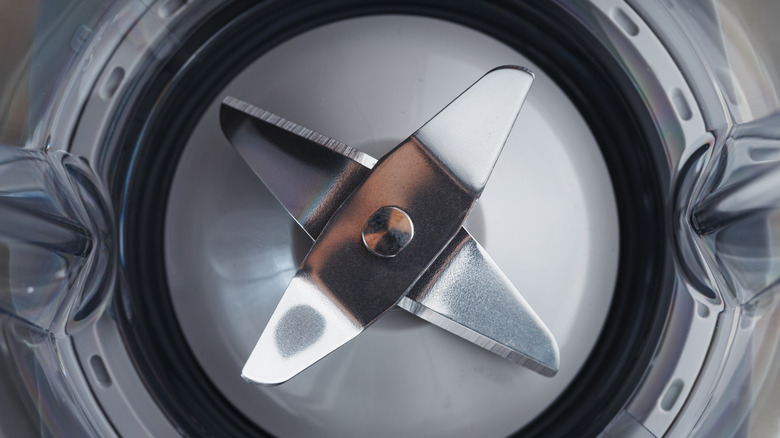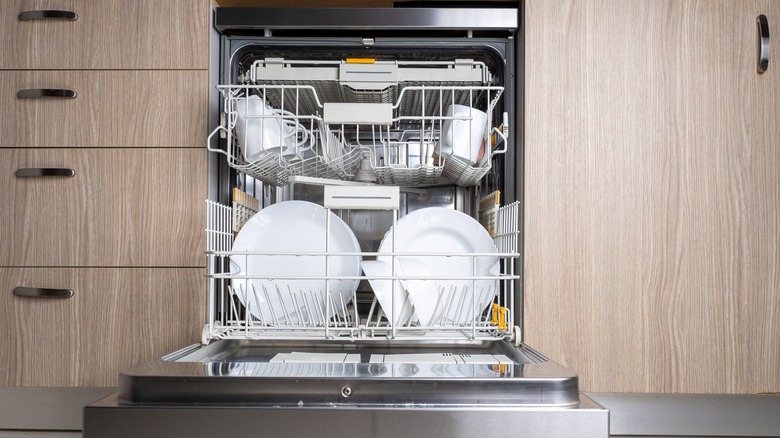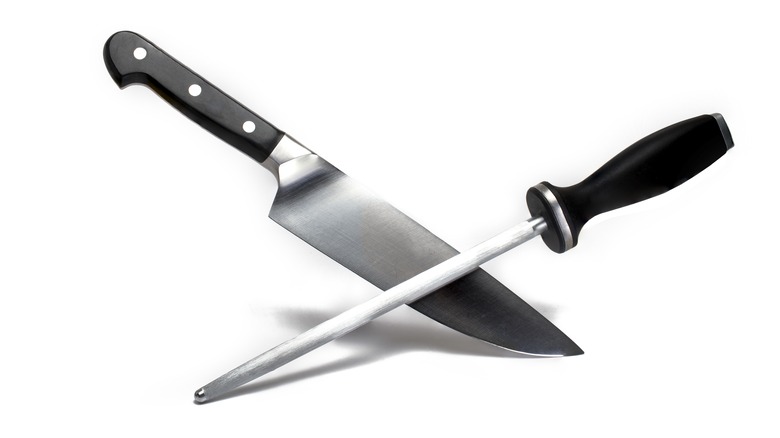Never Put Blender Attachments In The Dishwasher. Here's Why
Modern kitchen appliances definitely make life easier. Gone are the days when we had to heat up our own coffee, chop our own veggies, or wash our own dishes. Nowadays, we have automatic coffee makers, food processors, blenders, and best of all, dishwashers to do all that hard work for us. Thanks to a few creative inventors from years past, modern Americans can save hours of time and effort, not to mention avoid the tedious chore of hand washing dishes after every meal.
Surprisingly, dishwashers are older than you probably think they are. While electronic coffee makers weren't invented until the 1950s, and blenders didn't come into existence until the 1920s, the very first dishwasher was patented all the way back in 1850. In fact, the dishwasher was invented before Americans even had electric lighting and indoor plumbing in their homes. But the very first dishwasher, which was patented by an inventor named Joel Houghton, didn't even require electricity.
Instead, it was operated by hand, made of wood, and used scrubbers to wash down the dishes, according to ThoughtCo. The idea of a machine that would wash dishes for you was undeniably a great one. There was just one problem: Houghton's machine didn't really get the dishes all that clean. So a few other inventors stepped in, capitalizing on the opportunity to make a machine that actually delivered on the promises of the original.
Dishwashers didn't really take off until the 1970s
The first reformer was another man, named L. A. Alexander, who added a geared spinner to the wooden tub. However, it was Josephine Cochran who, fed up with these ineffective designs, declared, "If nobody else is going to invent a dishwashing machine, I'll do it myself," per ThoughtCo. She not only completely revised the design, using water pressure instead of scrubbers to clean the dishes, but she also founded the company KitchenAid to distribute her new invention to the masses.
However, while big operations like hotels and restaurants took to the new invention after Cochran debuted it at the 1893 World's Fair, dishwashers weren't embraced by the general public until several decades later. In the 1920s, individuals began to see the benefit of having dishwashers in their homes, but they were a pricey investment that only the wealthy few could afford. By the 1950s, they began to become more accessible to the masses, although at that point they were still considered a luxury item, according to Deweese Appliance.
It wasn't until two decades later that dishwashers became a commonplace kitchen appliance. Now, modern dishwashers don't require a hand crank or a pulley. Thanks to indoor plumbing and electricity, all you need to do is load it up, press a few buttons, and wait for the automated mechanisms inside to do their thing.
Sharp items should be hand washed
While modern dishwashers are now effective, efficient, and work better than ever, they still are not quite as magical as the most optimistic inventors may have hoped. As much as we might wish we could just toss everything in our kitchen, including the countertops and stoves, in the dishwasher to get them cleaned, there are some things they cannot do. There are a few items that should never be put in the dishwasher, which unfortunately means handwashing still isn't a thing of the complete past.
Knives, blender and food processor attachments, graters, slicers, and pretty much any sharp thing that you want to keep sharp should be kept away from the high heat and moisture inside the dishwasher. Dishwashers can reach temperatures of up to 155 degrees Fahrenheit, which can cause sharp blender blades to go dull and become less effective, per Maytag. Excessive moisture also isn't great for sharp blades, which can rust, and even certain dishwashing detergents can be abrasive and harmful to the health of the tool.
Things can also shift around in the dishwasher, causing damage to the knife's edges and even the dishwasher itself. Sharp-edged kitchen utensils can "cut up the plastic coating on your dishwasher shelves and expose the metal undercoat to rust," The Whole Bowl owner Tali Ovadia explained to Martha Stewart. The next time you chop up some fresh veggies or blend up an antioxidant-packed smoothie, you can feel good about eating healthy, but unfortunately, you should probably do the cleanup by hand.


